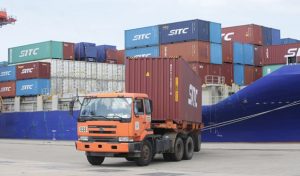Like a well-oiled machine, the logistics industry in Singapore is constantly seeking ways to streamline operations and enhance efficiency. With an increasingly competitive landscape and rising customer demands, companies are turning to automation as a solution to meet these challenges head-on. In a bid to stay ahead in the game, one prominent logistics company in Singapore has recently made a significant investment in automation technologies. This move is not only poised to revolutionize their internal processes but also set a new standard for the industry as a whole.

Current Challenges in the Logistics Industry
The logistics industry currently faces challenges stemming from increasing consumer demands, fluctuating market conditions, and the need for more efficient supply chain management. With consumer expectations constantly rising, logistics companies must adapt to meet these demands. Market conditions, including economic shifts and global events, directly impact the industry. Efficient supply chain management is crucial for meeting delivery deadlines and ensuring customer satisfaction, making it a top priority for logistics firms.
Benefits of Automation Adoption
Incorporating automation into logistics operations directly addresses the challenges of meeting increasing consumer demands, navigating fluctuating market conditions, and optimizing supply chain management for improved efficiency. Automation adoption streamlines processes, reduces human error, and enhances accuracy, leading to faster and more reliable order fulfillment. By leveraging technology such as automated sorting systems and inventory management software, companies can significantly improve productivity, reduce operational costs, and enhance overall customer satisfaction.
Implementation of Automated Technologies
To optimize efficiency in your logistics operations, consider integrating automated technologies to streamline processes and enhance productivity. Start by conducting a thorough assessment of your current operations to identify areas where automation can make the most impact. Choose automated solutions that align with your specific operational needs and can seamlessly integrate with your existing systems. Develop a comprehensive implementation plan that includes training for staff and a phased approach to minimize disruption.
Impact of Automation on Operational Efficiency
Considering the potential areas for automation identified through a thorough assessment, the impact on operational efficiency is a strategic focus for optimizing logistics operations in Singapore. Automation has shown a significant reduction in processing times, with an average decrease of 40% across various operational tasks. Additionally, error rates have decreased by 25%, leading to improved accuracy and customer satisfaction. These improvements contribute to a streamlined and more efficient logistics process.
